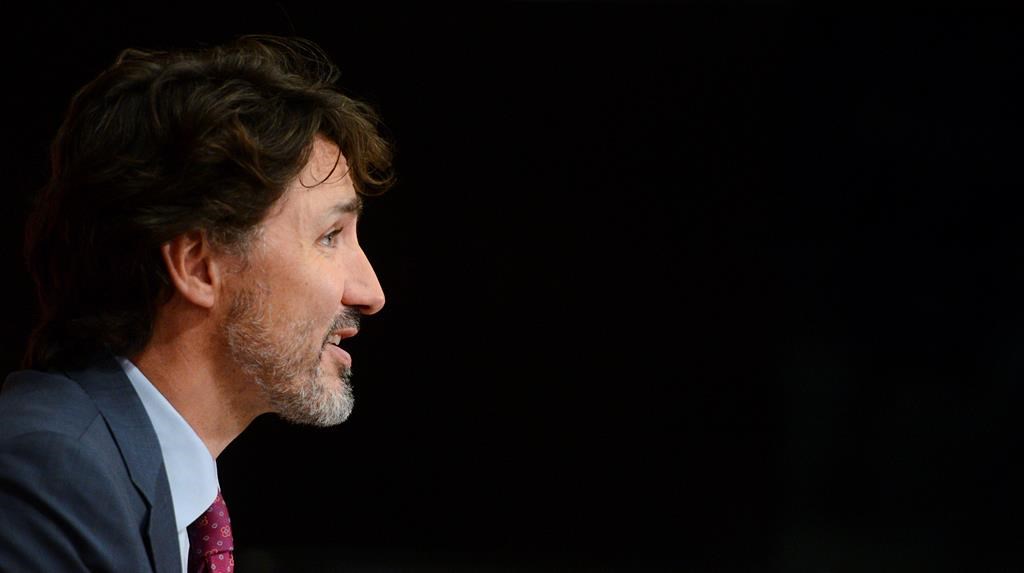Canada’s political pundits have been abuzz for the last several weeks about the possibility of a federal election being triggered by the Trudeau government’s throne speech.

Yet there’s only one reason for prime ministers to call early elections, and that’s if they think they can win.
A clear-eyed review of the polling data shows that Justin Trudeau’s minority Liberal government wouldn’t have much to gain from an election right now.
Typically, the timing of a federal election is easy to determine. For a federal government with a majority, this is an easy question to answer. As Canada’s Election Act stipulates, it must take place on the third Monday in the October of the fourth calendar year after the previous election.
For minority governments, such as the current Trudeau government, it’s not as simple. They can also be brought down by losing a confidence vote in the House of Commons, which almost always triggers an election.
Sometimes a minority government engineers its own defeat, like Stephen Harper and the Conservative Party did in 2011. Sometimes it’s because the government is forced into an election by the opposition, as Paul Martin and his Liberal Party were in 2005.

There has been speculation that, if the Liberals aren’t defeated on their throne speech or upcoming budget, Prime Minister Trudeau could break the Canada Elections Act and force an election himself. Former prime minister Stephan Harper did exactly this 2008 and won the subsequent election (although another minority), so this isn’t without precedent.

Get daily National news
Such a strategy would take advantage of the Conservatives having a new, untried leader in Erin O’Toole. Former prime minister Jean Chretien followed exactly this strategy in 2000 when he strengthened his majority by defeating the Alliance Party and its new leader Stockwell Day.
Despite all the theorizing about the benefits and detriments of triggering an election right now, there’s only ever one good reason to go: if you truly believe you will win. For minority governments, this means winning a majority. Why else would you risk it?
That’s especially for the case with the current Trudeau minority government, which would need to be defeated by a united vote of all three major opposition parties. It already almost has a sort of “minority-majority,” given the difficulty of getting the three opposition parties to agree on anything.
READ MORE: Ahead of throne speech, Canadians see coronavirus pandemic, jobs as top concerns, Ipsos poll says
- Quebec premier calls on Bloc Québécois to help topple Trudeau government
- Americans can now renew passports online. Canadians are still waiting
- Pablo Rodriguez quits Trudeau cabinet to seek Quebec Liberal leadership
- Telus call centre workers in Ontario facing ‘extreme stress’ as they fight Quebec move
The polling data shows the Liberal Party is not within striking distance of a majority today. It is currently tied with the Conservatives and lacks momentum.
Ipsos tracking polls for Global News show the gap between the Liberals and their main rival, the Conservatives, has closed over the last several weeks, and the BQ and NDP are both looking stronger, too. Sure, campaigns matter and standings can change, but risking it all right now is difficult to justify based on the numbers.
Another line of argument is that the Liberals would be smart to go because the future looks even bleaker. It’s likely O’Toole and the Conservatives will grow stronger as the COVID pandemic and associated economic difficulties create even more challenges for the federal government. Throw in potential future revelations from the WE Charity scandal and a majority in 2021 could be even further out of reach than it is today. Better to go now and avoid all of that.

Students of Canadian political history will remember what happened to former Ontario premier David Peterson when he followed a similar strategy in 1990.
Peterson thought he would steal a march on his opponents and pending economic difficulties by calling an early election. Ontarians didn’t see it Peterson’s way. They elected Ontario’s only NDP provincial government under the leadership of Bob Rae — who these days is Canada’s new UN Ambassador.
A very similar situation happened in Alberta when it elected a majority NDP government lead by Rachel Notley.
READ MORE: More than half of Canadians think coronavirus deficit too big but split on election need
Putting all of this together, as well as recent signals from the Trudeau Liberals, it is very unlikely we will have a federal election before the end of the year. The soonest we can expect one would be sometime in the spring of 2021.
But if the numbers don’t start moving the Trudeau government’s way, it could be even later than that.
Darrell Bricker is CEO Ipsos Public Affairs and the author of ‘NEXT: Where to Live, What to Buy, and Who Will Lead Canada’s Future’ (Harper Collins, 2020).








Comments